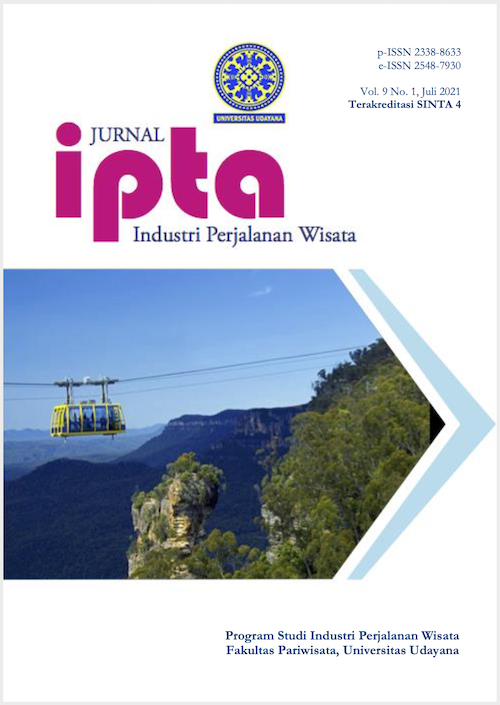RANCANGAN PENGELOLAAN SOCIAL MEDIA MARKETING ENGAGEMENT
(Studi Kasus pada Akun Facebook dan Instagram Museum Kesejarahan Jakarta)
Abstract
This research intends to designed the engagement management of facebook and instagram of Management Unit of Jakarta Historical Museums formed by 3 major elements in managing social media interactions namely creator-related features, contextual features, and content features. This study used kualitatif method with descriptive approach by conducting interviews with companies and visitors, also observation on their social media. Which the results be analyzed using the Miles and Huberman analysis model and tested the validity of the data using source triangulation technique. The results of this research show that Management Unit of Jakarta Historical Museums has operator division in managing their social media consisting of coordinator and three admins, but there is no classification of admin’s job description in managing their social media. From both social media, the interaction that exists on facebook and instagram is still not optimal can be seen from the average number of likes and comment that has not shown a significant number. Interesting content for visitors is informative, provide detailed information, the right composition and layout, and use filters that are not excessive.
Downloads
References
Bakhshi, S., D. A. Shamma, dan E. Gilbert. 2014. Faces Engage Us: Photos with Faces Attract More Likes and Comments on Instagram. Proceedings of the SIGCHI Conference on Human Factors in Computing Systems, pp. 965-974. https://doi.org/10.1145/2556288.2557403
Brogan, Chris. 2010. Social Media 101: Tactics and Tips to Develop Your Business Online. John Wiley & Sons. https://doi.org/10.1002/9781118256138
Castronovo, Cristina dan Lei Huang. 2012. Social Media in an Alternative Marketing Communication Model. Journal of Marketing Development and Competitiveness, Vol. 6, pp. 117-131.
Hidayah, Nurdin. 2019. Pemasaran Destinasi Pariwisata. Bandung: Alfabeta.
Jaakonmaki, R., Oliver M., & Jan vom B. 2017. The Impact of Content, Context, and Creator on User Engagement in Social Media Marketing. Proceedings of the 50th Hawaii International Conference on System Sciences. https://doi.org/10.24251/HICSS.2017.136
Jayasuriya, N., Ali K., Ferdouz A., & Isuri R. D. 2018. The Role of Social Media Marketing on A Brand Equity – A Literature Review.
Kotler, P. & Gary A. 2009. Principles of Marketing. United Kingdom: Prentice Hall.
Kotler, Philip, et al. 2018. Marketing Management; An Asian Perspective. United Kingdom: Pearson.
Lee, D., H. Kartik, & N. Harikesh. 2014. The Effect of Social Media Marketing Content on Consumer Engagement: Evidence from Facebook. Working Paper, The Wharton School, University of Pennsylvania, pp. 1-51.
Minculete, Gheorghe dan Polixenia Olar. 2018. Approaches to the Modern Concept of Digital Marketing. International Conference Knowledge-Based Organization.Vol. XXIV. No 2. https://doi.org/10.1515/kbo-2018-0067.
Moleong, Lexy J. 2002. Metodologi Penelitian Kualitatif. Bandung: PT. Remaja Rosdakarya.
Raco. 2010. Metode Penelitian Kualitatif. Jakarta: Grasindo.
Sugiyono. 2012. Metode Penelitian Kuantitatif Kualitatif dan R&D. Bandung: Alfabeta
Švajdová, Lenka. 2019. Modern Marketing Communication in Tourism. Czech Republic. Journal of International Business Research and Marketing. Vol. 4, Issue 2, 2019. https://doi.org/10.18775/jibrm.1849-8558.2015.42.3003.
Trackmaven. (2014), The Fortune 500 Instagram Report. Tersedia: http://pages.trackmaven.com/rs/trackmaven/images/TM_Fort une500_Instagram_Report.pdf.

This work is licensed under a Creative Commons Attribution-ShareAlike 4.0 International License.





